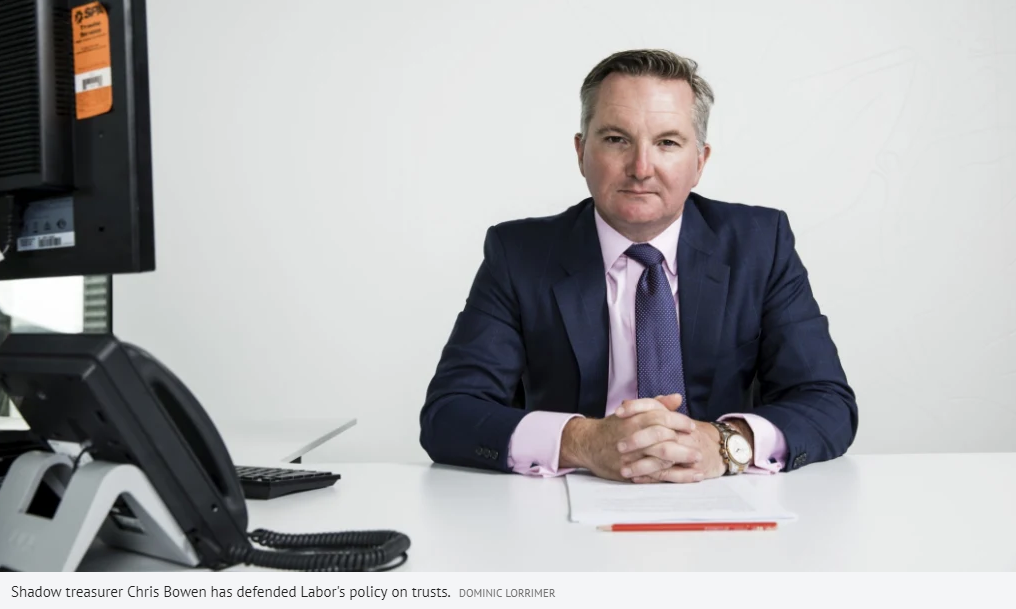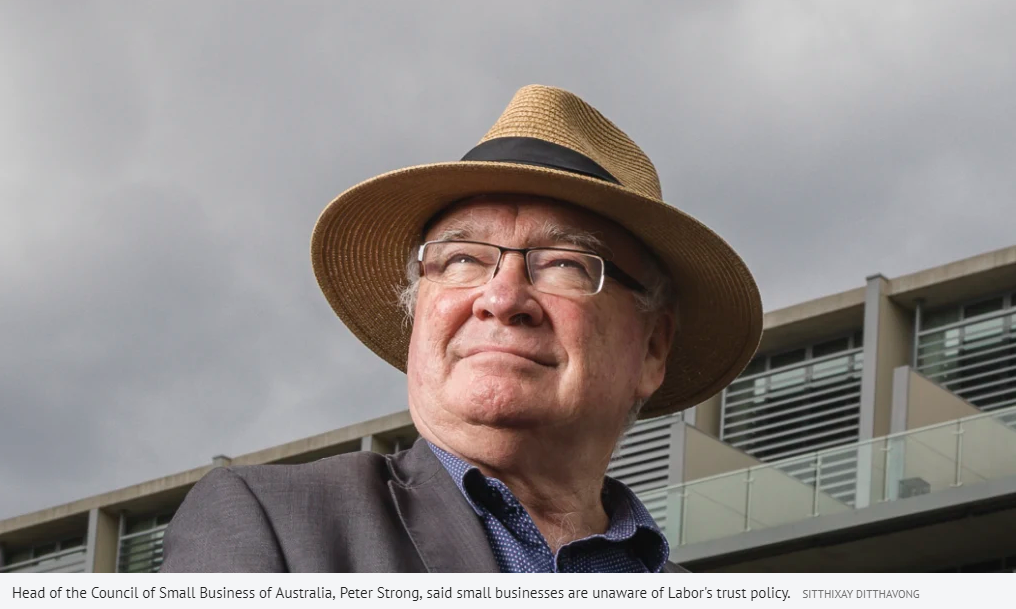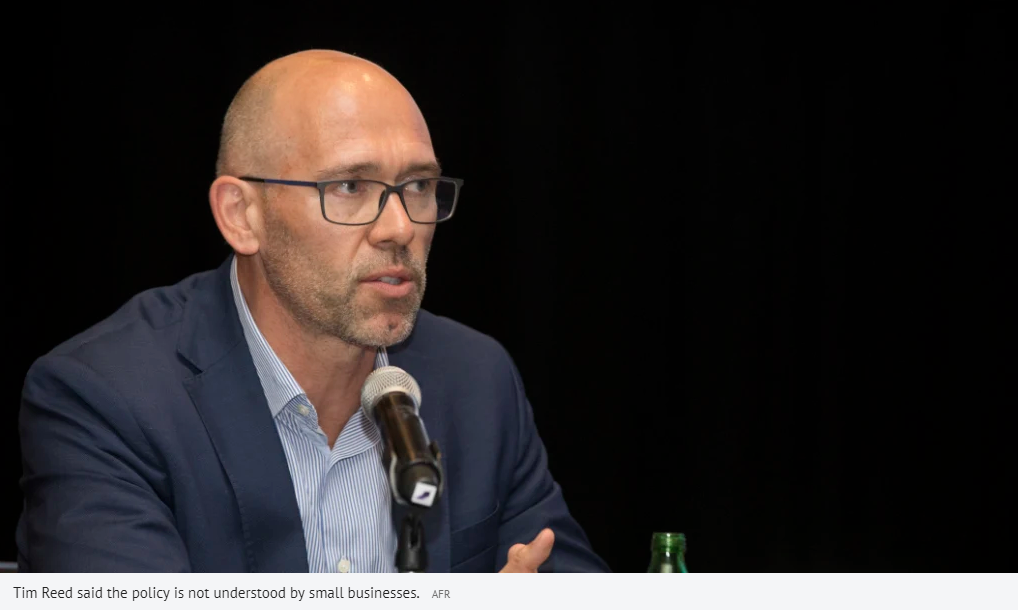

Published by The Sydney Morning Herald
Written by Cara Waters on 2 May 2019
Small businesses remain confused about the impact of Labor’s policy on family trusts as the election looms.
Labor has pledged to introduce a standard minimum 30 per cent tax rate from 1 July 2019 for discretionary/family trust distributions.

Head of the Council of Small Business of Australia, Peter Strong, says most small businesses are unaware of the policy.
“I think it is below the radar but it will have quite a big impact,” he says. “It discriminates against people who are running a business and who are investing in that business. The policy is misdirected, the policy is saying ‘If you run a trust you are doing it because you want to unfairly minimise your income’. You don’t maximise your tax you minimise it.”
Family trusts are a common investment vehicle for small business owners with an MYOB survey of more than 1,000 business owners released this week finding 29 per cent of business owners have established a trust either for family or business purposes.

However the MYOB research found confusion amongst small business owners around the impact of Labor’s policy.
Of those surveyed 42 per cent said they thought Labor’s policy would have a negative impact on their trust arrangements, 33 per cent thought it would have a positive impact, 17 per cent thought it would have no impact and 8 per cent did not know.
MYOB chief executive Tim Reed said these responses show the policy is not understood by small business owners.
“I can’t imagine how it would have a positive impact yet 33 per cent have said it will,” he said. “What that highlights to me is small business owners are very busy and consumed in their daily business and haven’t engaged with this issue.”

Shadow treasurer Chris Bowen defended Labor’s policy saying it is targeting tax minimisation and income splitting, opportunties not open to PAYG tax payers.
“Small businesses can pay wages to employees in the normal way,” he said. “What Labor’s reforms will do is make it more difficult for family trusts to make distributions to those not engaged in the business, by cracking down on income splitting.”
Mr Bowen said many of the self-classifying discretionary trusts captured by the policy will be not be “active” businesses and instead will be doctors, lawyers, surgeons, builders, accountants and investment bankers who are splitting income through their trust to beneficiaries.
“Labor’s policy is well targeted and will not effect 98 per cent of taxpayers,” he said.

